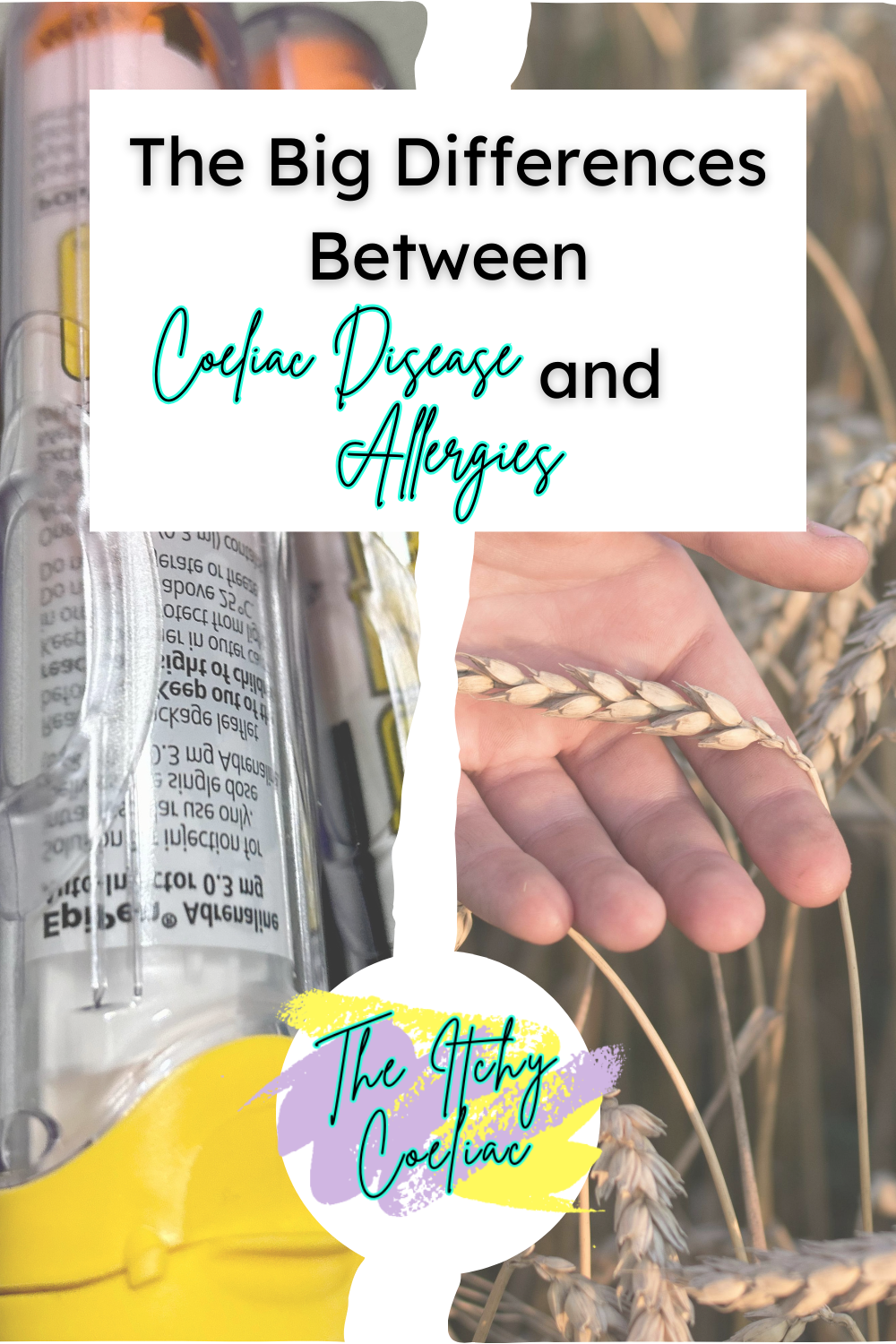When I was diagnosed with Coeliac Disease, a lot of people said “Well, it makes sense because you have so many other allergies!”. However, when I joined the online Coeliac community and did a little research, one thing became very clear. Coeliac Disease is NOT an allergy.
In this post I’ll go through what the differences are and why it is important. As someone with both allergies and Coeliac Disease, I was interested to discover how despite their similarities they were in fact different things.
Why not pin it for later?
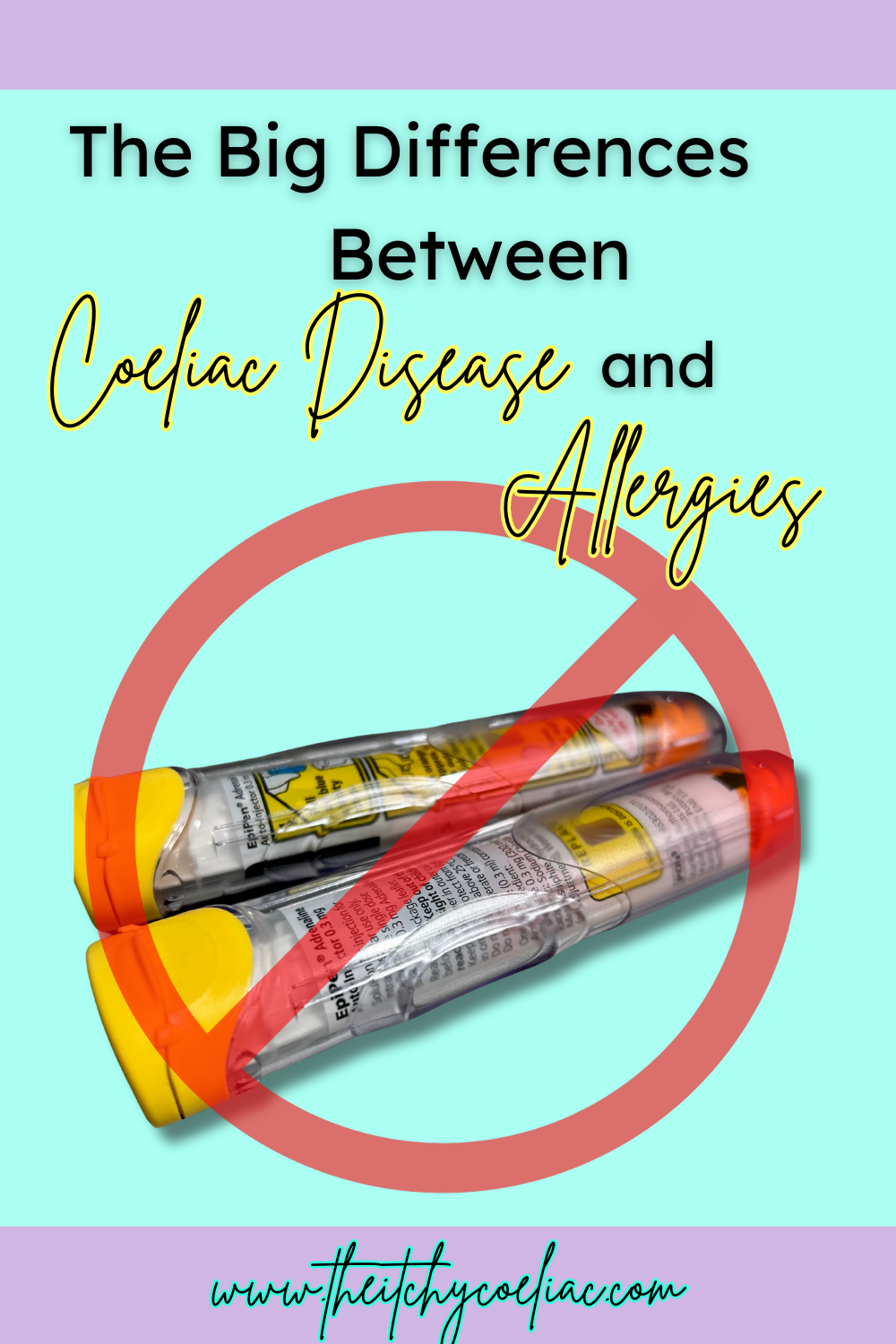
What is Coeliac Disease?
First thing to know is what exactly Coeliac Disease is. If you haven’t already, I would strongly advise giving ‘Coeliac Disease: Learning the Gluten Free Life’ a read. In that post I go into detail about all the ins and outs of Coeliac Disease!
For a quick overview, Coeliac Disease is an autoimmune disease. The the immune system attacks the body’s tissues when gluten is consumed. Little tube-like growths named Villi that are in the lining of the intestine are damaged and flattened. This means the individual isn’t able to absorb the nutrients needed and their digestive system is affected.
So basically, eating gluten is going to very much upset your insides!
What is an Allergy?
An allergy is the body’s immune response to things that are normally harmless. In people that don’t have allergies, things like pollen or shellfish pose no threat. But in us allergy people, our bodies identify certain things as a threat. Then they initiate a response to defend against it.
This response can range from something like a localised rash to anaphylaxis. This is where the throat can begin to swell, obstructing the airways and cutting off the oxygen. Anaphylaxis can be fatal so it’s vitally important that allergies are understood and appropriately managed.
My body in particular has decided that we must absolutely fight against food like eggs (whites specifically), nuts, bananas and peas. Yes, you read that right – peas.
Thankfully, I’ve never gotten to the stage where I’ve been in anaphylaxis, but there’s been some close calls. Usually, I can tell straight away when I’ve come into contact with an allergen of mine.
My throat will get itchy and my lips will swell up till I look like I’ve had way too much filler. I’ll become aware of it usually within the first three minutes and instantly stop eating whatever I’ve got and try not to panic too much!
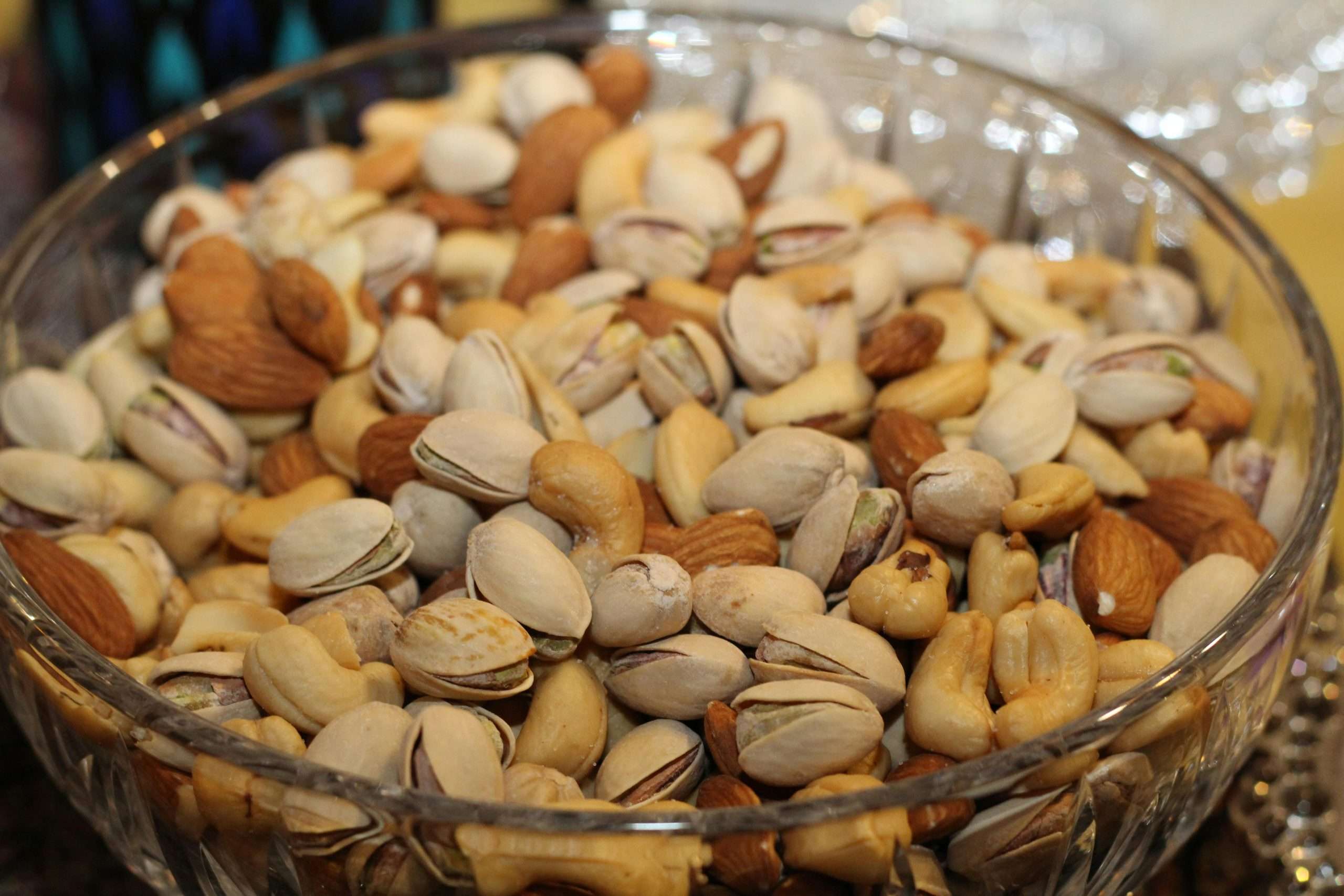
So what’s the difference between Coeliac Disease and an allergy?
How it works
Coeliac Disease is an autoimmune disorder where the immune system mistakenly attacks the lining of the small intestines when you consume gluten. While an allergy is an immune system reaction. The body wrongly identifies a food item as a threat and releases histamines and other chemicals which bring on the reaction.
Symptoms
The symptoms between the two are usually quite different, which can help identify them from each other. Coeliac Disease can cause symptoms such as diarrhoea, bloating, cramps, gas, etc. It also often comes with less well known symptoms like fatigue, weight loss, anaemia, brain fog and dizziness. The symptoms of Coeliac Disease are usually experienced over a longer range of time before the person is diagnosed.
When you have an allergic reaction, the symptoms are usually obvious very quickly. Typically, within minutes up to a couple of hours after, you’ll start to experience some of the effects. This can be things like hives, a rash, swelling, itching or nausea/vomiting. As I mentioned earlier, allergies can also result in anaphylaxis in severe cases which can be extremely dangerous.
How are they diagnosed differently?
So what are the differences between allergies and Coeliac Disease when being diagnosed?
When it’s suspected that you have Coeliac Disease, it generally starts with a blood test. If these show indicators that you may have it you might then be sent for either an endoscopy, colonoscopy or potentially both.
A definite Coeliac diagnosis usually requires biopsies from the small intestine so the Villi can be seen. If it appears that they have become flattened or damaged it can often be identified as caused by Coeliac Disease.
Diagnosis for allergies can be a little bit different. You might still have blood tests in order to see if there are certain levels of antibodies reacting to suspected allergens.
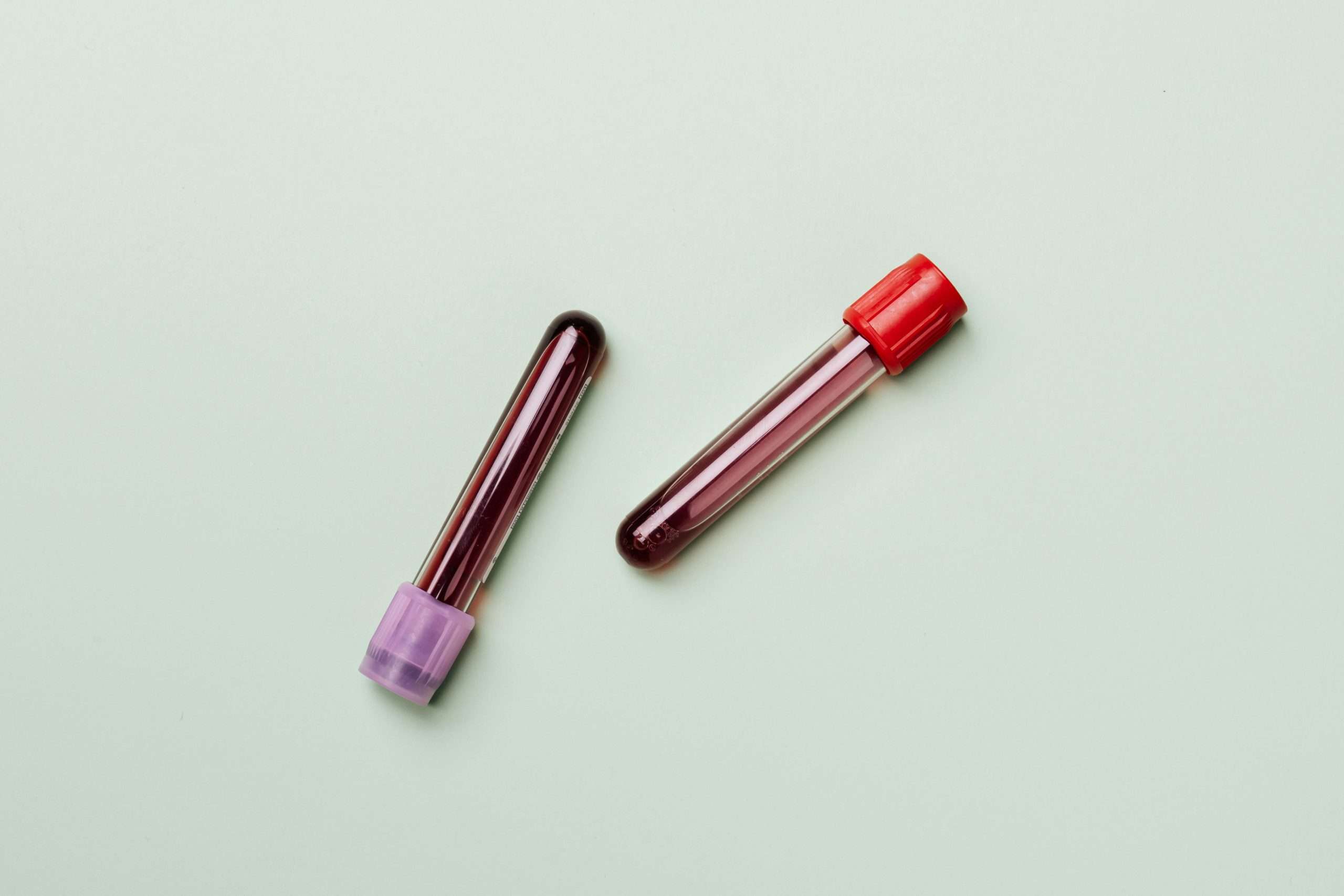
If you think you might be having allergic reactions then you may have what’s called the ‘skin prick test’. This is where small amounts of the suspected allergen are pricked into the skin. It’s then monitored to see if a reaction has occurred such as a rash or if the skin has become raised.
Another type of diagnosis, primarily for food allergens, is oral food testing. Again, this is where a small amount of the food is eaten. You’ll then be observed to see if you have any reaction.
Usually from these various tests, it can be confirmed whether or not you are suffering from an allergy – or multiple allergies!
How do we treat allergies vs Coeliac Disease?
Admittedly, when it comes to treating both allergies and Coeliac Disease there are similarities. With both, the main thing is to avoid whatevers causing the issue.
When you have Coeliac Disease, the only course of treatment is to remove gluten from your diet permanently. That’s the only way you can ensure that you’re not causing any internal damage. Once gluten is removed, you usually start to see some of those symptoms from earlier start to disappear.
Allergies are similar in the fact that you should avoid whatever it is your allergic to as much as possible. For example, I have a severe nut allergy so I know to stay away from it at all costs. Any meal or environment where it might be an issue, I make sure I remove myself from it.
Because the treatment methods can be similar for both, it’s not crazy that people might assume them to be the same thing. Another similarity I’ve found with both my allergies and Coeliac, is checking food labels. I’ve always had to check ingredients for nuts and eggs so it wasn’t too much of a reality check when I was suddenly having to look for gluten too.
One difference when it comes to allergies vs Coeliac Disease in terms of treatment comes into play when an allergy results in anaphylaxis.
While eating gluten when you’re Coeliac can cause long term damage to your intestines and can make you feel seriously ill – it’s not going to immediately kill you. (I’m not diminishing Coeliac Disease here at all, the effects of gluten can be devastating but I’m comparing it to an instant allergic reaction so please don’t come for me!)
However, if I was to take a big bite of a breakfast bar that I didn’t realise had peanuts in it – I would be in big trouble. Within minutes, I could be fighting for my life as my airways close because I’m going into anaphylactic shock.
Most people with allergies are encouraged to carry at least two Epi-pens (epinephrine auto-injector) on them at all times. These are medical devices that are used to inject a dose of adrenaline should you be having an anaphylactic reaction. They can help to quickly reverse the reaction, giving you time to call an ambulance and get to a hospital.
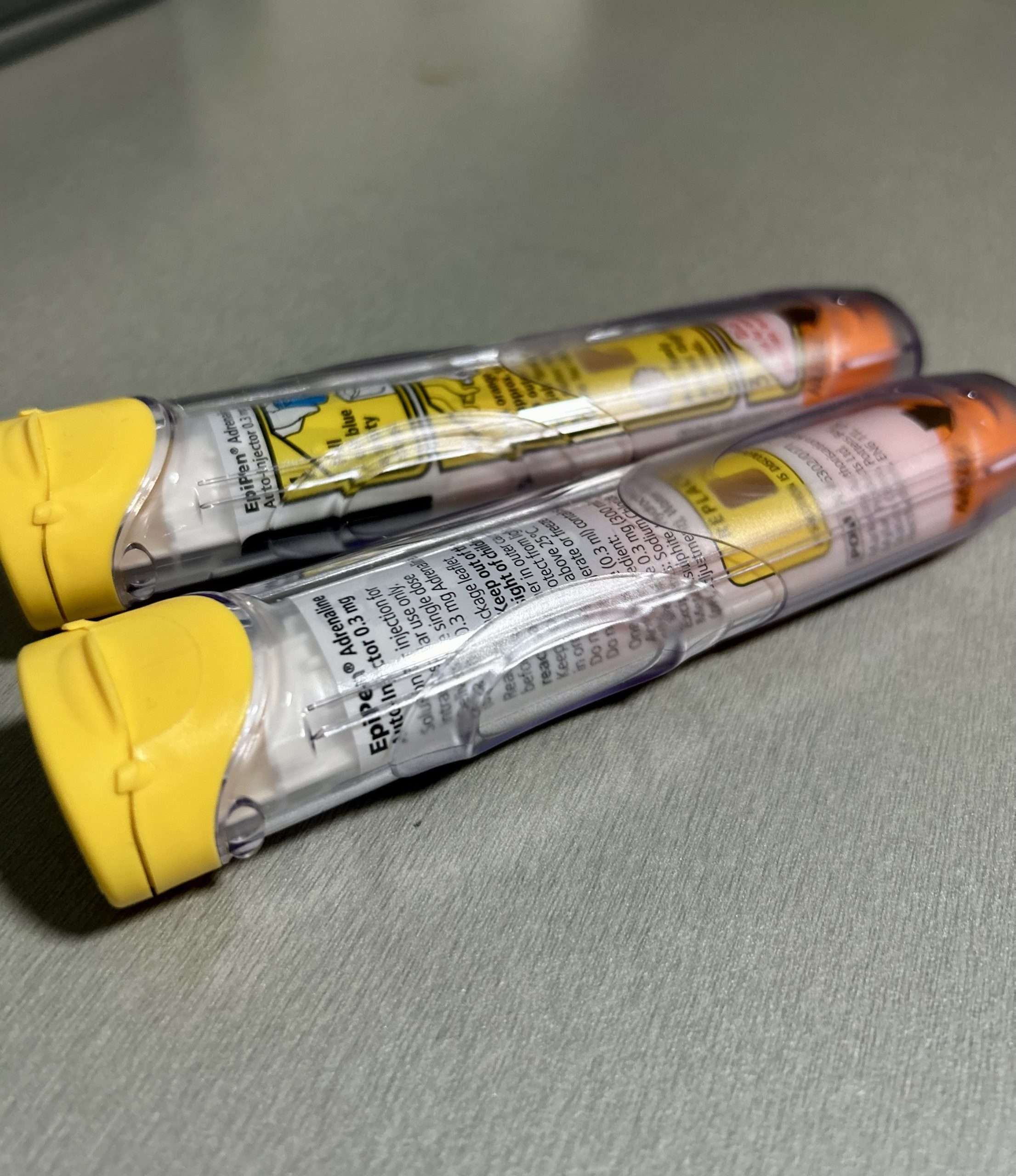
This emergency treatment is one of the reasons that allergies are a little different from Coeliac Disease. Unless you also have a severe gluten or wheat allergy then it’s unlikely you’ll have that instant reaction from eating gluten containing foods when you have Coeliac Disease.
It’s important to note however that not all severe allergies are fast acting. There are cases where it can be a couple of hours to almost a day before the reaction takes place. This is just another thing that can cause a bit of confusion when it comes to allergies and Coeliac Disease.
Why is it important we know the difference between allergies and Coeliac Disease?
To some people these differences might seem a little bit nitpicky but to someone suffering with either condition it can be of vital importance.
When the nature of Coeliac Disease is misinterpreted as simply an allergy, it can be difficult for those that have it. It might be inappropriately managed and can cause more issues internally. The last thing anyone wants is increased health risks so it’s important to know the differences.
It’s a common thing for people with Coeliac Disease to themselves label it as an allergy, simply for ease. When you go to a restaurant they’ll always ask (or should always ask) if anyone has any allergies. If you say no that’ll probably be the end of that. We then have to speak up to let them know we have Coeliac Disease.
More and more places are becoming welcoming to the Coeliac community but there are still a fair amount that are not. You might be met with blank stares or even “what’s that?”.
Obviously this is frustrating for a number of reasons so people with Coeliac might instead say yes when asked if they have an allergy. That way they know it will at least be understood as a dietary requirement and some measures will be in place (hopefully!).
Coeliac Disease is not an allergy
It is vitally important to know the differences between allergies and Coeliac Disease. Without that knowledge it can lead to so many more issues. Misdiagnosis or even prevention of diagnosis for those with Coeliac which can be dangerous as they’re causing damage to their bodies without realising it or knowing the cause.
We need to make sure that people are getting the correct diagnosis, management and treatment. Whether they have allergies or Coeliac Disease. As I outlined above, they’re different for both so it’s important that they’re dealt with in the appropriate way.
By bringing this up and talking about it we can hopefully prevent serious health complications, improve people’s quality of life and get them better support that’s tailored specifically to them.
So if you are suffering with Coeliac Disease, don’t be scared to tell people about it! The more people we educate (particularly in the scenario mentioned above) the better off both communities will be.
If this post was useful, make sure it to share so we can educate more people on the differences between Coeliac Disease and allergies. Leave a comment and let me know about your allergies or experience with Coeliac Disease!
